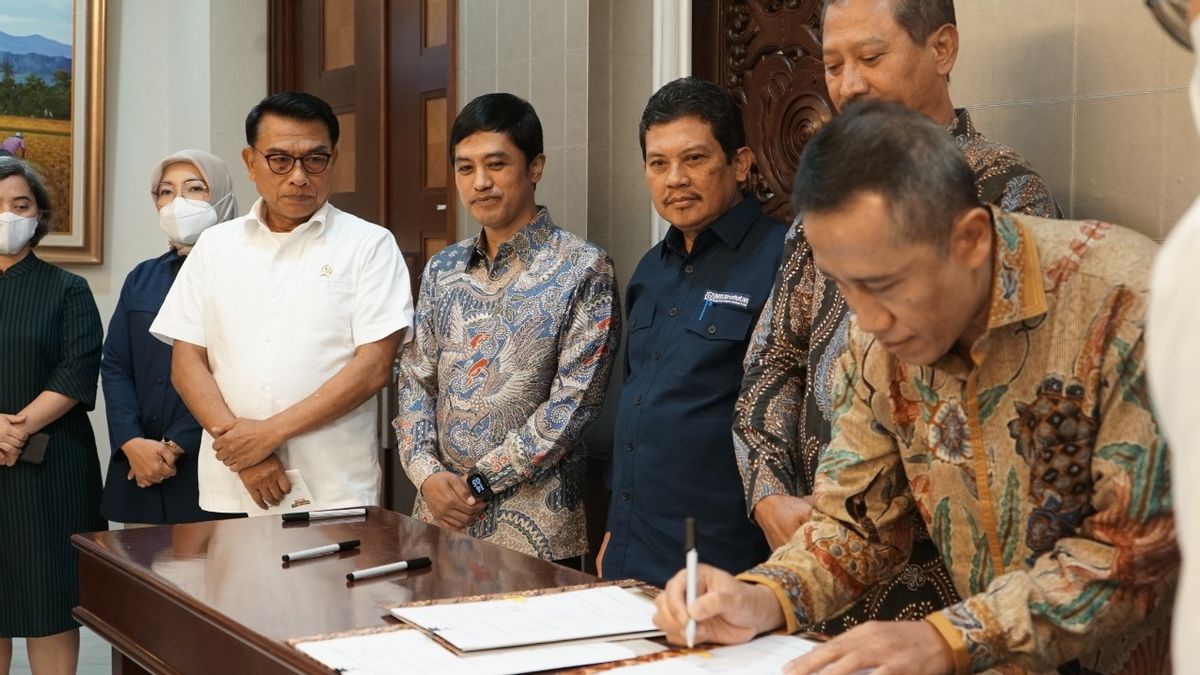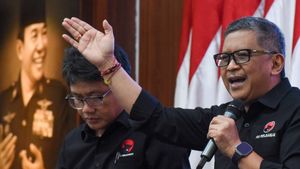Presidential Chief of Staff (KSP) Dr. Moeldoko called on all BPJS Health Hospital partners, both government-owned and private, to contribute to advancing the domestic health industry, especially with the procurement of domestic medical devices and medicines.
This commitment is called upon to follow up on Presidential Instruction (Inpres) No. 2 of 2022 and the President's directive to the success of the Proud National Movement Made in Indonesia by accelerating the increase in the use of domestic products, especially for medical devices & medicines in 2022.
"There is one thing that we include in the cooperation agreement between BPJS and Mitra Hospital, namely the commitment to prioritize spending on domestic products. This is something that we must collaborate with," said Presidential Chief of Staff Dr. Moeldoko, at the Bina Graha Building. Jakarta, Friday 23 December.
President Joko Widodo has repeatedly emphasized the importance of spending on domestic products, especially MSME products. Meanwhile, spending on domestic products worth IDR 400 trillion is estimated to increase 1.7 percent to 2 percent of economic growth in Indonesia.
KSP itself has the task of overseeing and evaluating all strategic policies of the president, including one of the policies of spending on domestic products. The Presidential Chief of Staff has also formed a special team tasked with monitoring the realization of domestic product spending in Ministries/Institutions.
Therefore, KSP together with BPJS Kesehatan and the Ministry of Health initiated the signing of the Commitment to Improve the Use of Domestic Products through E-Catalog at hospitals owned by the Central Government, Regional Government, and Private Affairs as a breakthrough in the Proud Movement Made in Indonesia, on Thursday 22 December.
"In response to concerns about the quality and quantity of domestic products, I am sure that with the certainty of the number of purchases of domestic products, the local industry will definitely improve. The hospital clearly asks that the production capacity of domestic producers is able to meet the needs, the quality of products is maintained and prices compete," added Moeldoko.
Please note, based on national e-catalog data, total health spending in 2021 will reach IDR 27.4 trillion. Unfortunately, 66 percent of medical device transactions are still imported from abroad. It must be admitted that there is still a need to optimize domestic production and use of medical devices, especially those with high technology.
However, Deputy Health Minister Dante Saksono Harbuwono said the commitment to spending on domestic products would strengthen the resilience of the national health system. Therefore, the Ministry of Health will continue to evaluate the use of medical devices and domestic health products.
Meanwhile, BPJS Director Ali Ghufron Mukti appreciated this form of commitment to spending on domestic products in the health sector. This is because the commitment signed by the Hospital Association is expected to be able to increase the use of domestic products, especially products targeting JKN participants at a more affordable price.
It should be noted that the total utilization of the National Health Insurance (JKN) program continues to increase every year and the party who takes most advantage of it is the Contribution Assistance Recipient (PBI) from the underprivileged community. So that the availability of more affordable medical equipment will increase access to health services for the poor.
"BPJS has a collaboration with 2,881 hospitals throughout Indonesia with a total of 248 million JKN participants. This means increasing domestic product spending through the commitment of BPJS partners is a good strategy," said Ali Ghufron.
This domestic shopping commitment has been signed by 3 hospital associations witnessed by Moeldoko, including the Association of Indonesian Hospitals (PERSI), the Regional Hospital Association (ARSADA), and the Association of Indonesian Private Hospitals (ARSSI).
The English, Chinese, Japanese, Arabic, and French versions are automatically generated by the AI. So there may still be inaccuracies in translating, please always see Indonesian as our main language. (system supported by DigitalSiber.id)













